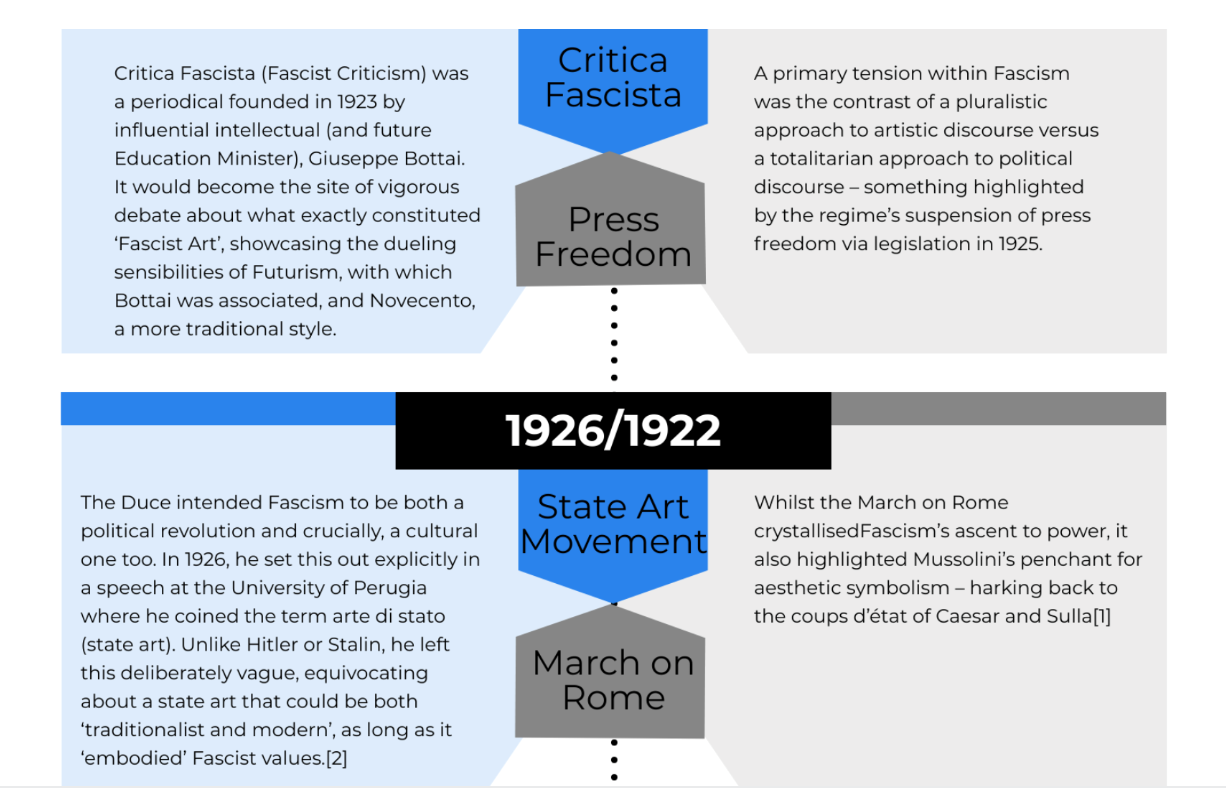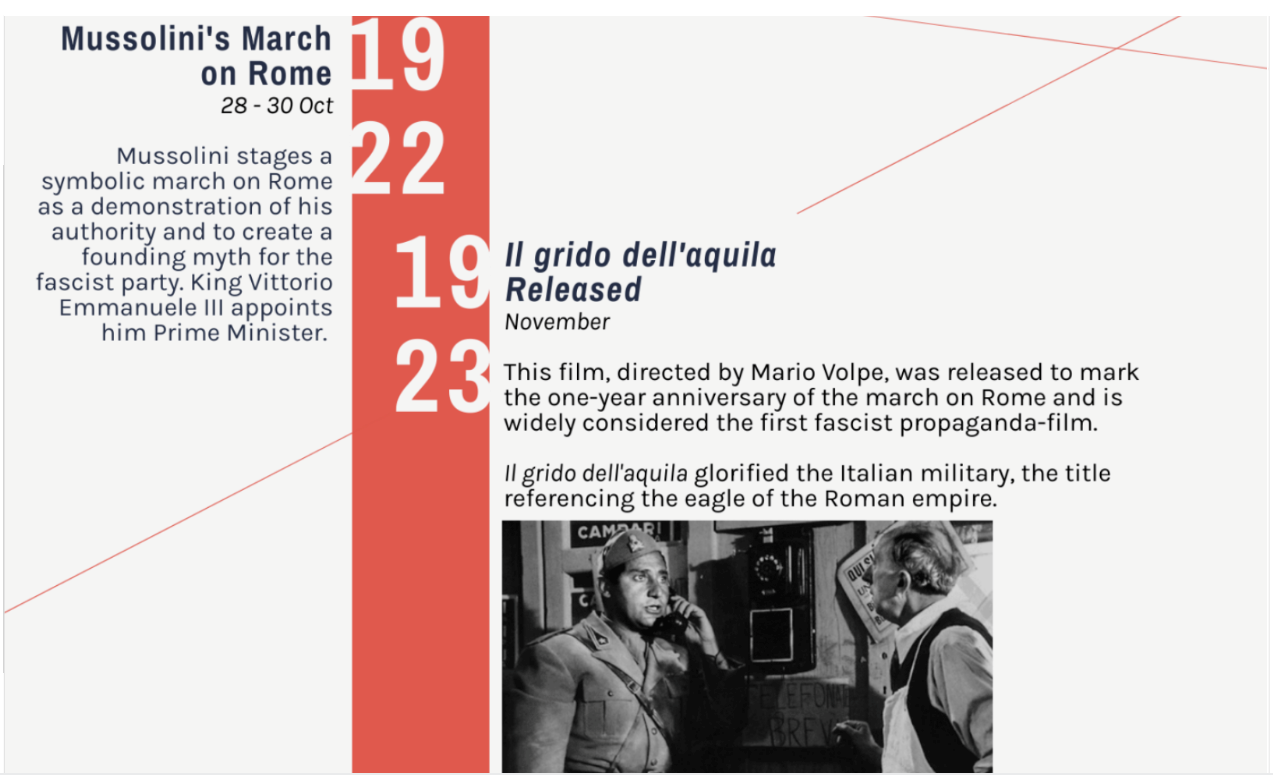Digital timelines and online exhibitions – assessing the aesthetics and politics of Italian Fascism
Francesca Billiani’s second year course explores the system of the arts developed during the Italian Fascist regime. Students in this course were asked to produce two pieces of assessments which could capture the interconnection between political events and art: namely, a timeline and an online exhibition.
Francesca decided to retain an essay component, albeit with a shorter word count, and introduced two new forms of assessment. Student needed to build an exhibition of artefacts and a digital timeline. The digital timeline involved students having to identify, select and explore the interconnection between political events and artefacts, thus engaging with art, politics and their relationship.
The digital timeline as well as the online exhibition embodied the interdisciplinary nature of the course and top matter at hand assisted in accommodating specific discipline focuses, breaking down barriers between disciplines.
Pragmatically, at the root of these innovative forms of assessment, there was a desire to reduce the marking load against an increasing number of students; conceptually, there was a desire to create assessment patterns which could evaluate students’ ability to work independently, to use online resources and to navigate across different disciplines. The course itself attracted students from different disciplines History, Italian, Drama, Modern Languages and Art History mainly, each of them with their specific focuses, methods and skillsets. Therefore, providing an opportunity to explore the connections between the different disciplines while not disadvantaging students and discipline practices was a distinctive challenge for this course unit.
An example of an online exhibition submission can be found here:
The following are examples of sections of a digital timeline submissions:


A virtual art exhibition has also been included in Francesca’s final year unit, dealing with public art in non museum settings:
Evaluation / Student Feedback
History student: You were so inspiring and really allowed me to develop a keen interest in the topic by giving us the chance to explore it in a much more creative way than simply essay writing … We got to look at all different aspects of Fascist culture something which allowed me to engage really well with the topic and I am still watching / reading things that relate to it! Especially during lockdown when everything is quite distanced and a bit down heartening, this module was honestly fantastic and made me feel inspired by studying history.
French & Italian Studies student: I really thought that the two assignments were different than what we are used to do normally. They were both instructive and creative, therefore, they really made me engage in the work and dig deep into the topic.
Film & Drama student: I loved the versatility of the course and material covered – I significantly deepened my knowledge of film, which I can then bring back to my own subject. The course explores one of the most formative historical periods of the 20th century – vital contextual information which can be applied to any study of art.
History & Art History student: I found this course extremely interesting since it incorporated historical events, artistic movements and the relationship between the two.
Benefits
- Reducing marking load.
- Providing students form different disciplines opportunities to do well and to truly break down barriers.
- Using assessment to increase students’ engagement with the course and with interdisciplinary perspectives.
- Encouraged original writing and responsible use of source material.
- Facilitates consolidation of students’ understanding of materials.
- Personalisation of choices and responses.
- Helps students develop transferable study skills, particularly digital confidence.
- Enhance students’ team working skills.
Top Tips
- Having dedicated time to re-design assessment is key. Coming up with innovative forms of assessment was facilitated by the fact that Francesca enjoyed research leave time around the topics of the course: The Dialectics of Modernity – http://dialecticsofmodernity.manchester.ac.uk/
- Use first-hand research to create innovative work-packages and assessments
- Use first-hand research to create original courses which can only be taught at Manchester
References

School: Arts, Languages and Cultures
Academic: Francesca Billiani
Courses:
ITAL20501 Aesthetics and Politics of Italian Fascism (Digital Timeline & Online Exhibition)
ITAL30342 Political and Cultural Histories of Italy (Online Exhibition)
Themes: Assessment innovation, Student digital skills
Ref: 021




0 Comments